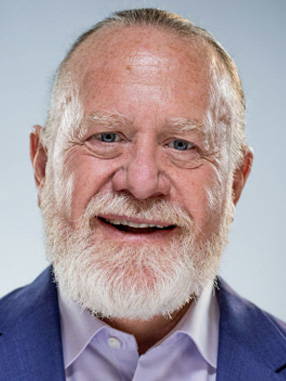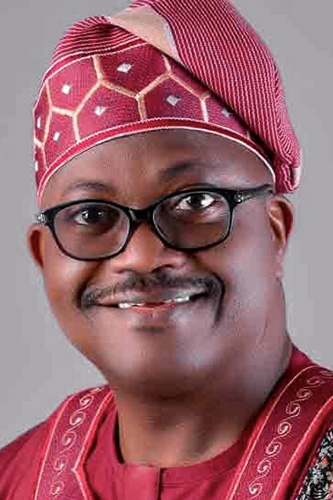

 Unlike past technological shifts, artificial intelligence is automating high-skilled professions before low-skilled ones. This reversal challenges long-held assumptions about job security, expertise, and governance, forcing policymakers to rethink regulation, trust, and digital sovereignty. more
Unlike past technological shifts, artificial intelligence is automating high-skilled professions before low-skilled ones. This reversal challenges long-held assumptions about job security, expertise, and governance, forcing policymakers to rethink regulation, trust, and digital sovereignty. more
 Granular regulation offers a new governance framework for AI, blending flexibility with enforceability. By translating broad principles into risk-sensitive, technical mandates, it overcomes the rigidity of rule-based models and the vagueness of principle-based approaches. more
Granular regulation offers a new governance framework for AI, blending flexibility with enforceability. By translating broad principles into risk-sensitive, technical mandates, it overcomes the rigidity of rule-based models and the vagueness of principle-based approaches. more
 The draft String Similarity Evaluation Guidelines risk entrenching past failures of Internet governance. With opaque algorithms and no right of appeal, ICANN's credibility hangs on whether transparency and fairness are restored before final adoption. more
The draft String Similarity Evaluation Guidelines risk entrenching past failures of Internet governance. With opaque algorithms and no right of appeal, ICANN's credibility hangs on whether transparency and fairness are restored before final adoption. more
 Over the past decade, cloud computing has experienced explosive growth, evolving from its nascent stage to widespread adoption and fundamentally changing how businesses and individuals use information technology. At the same time, traditional on-premise computing, while still having its use cases, has been progressively integrated with, and often even controlled by, Cloud Service Providers (CSPs) in many aspects. more
Over the past decade, cloud computing has experienced explosive growth, evolving from its nascent stage to widespread adoption and fundamentally changing how businesses and individuals use information technology. At the same time, traditional on-premise computing, while still having its use cases, has been progressively integrated with, and often even controlled by, Cloud Service Providers (CSPs) in many aspects. more
 The Secure Hosting Alliance has introduced a certification programme to establish clear, verifiable standards for internet hosting providers, aiming to improve accountability, boost transparency, and strengthen the trust that underpins global online infrastructure. more
The Secure Hosting Alliance has introduced a certification programme to establish clear, verifiable standards for internet hosting providers, aiming to improve accountability, boost transparency, and strengthen the trust that underpins global online infrastructure. more
 OpenVault's latest broadband report shows U.S. households using more data, with uploads rising faster than downloads and a major shift toward midrange speed tiers. Growing gaming, streaming, and cloud activity continues to reshape network demand and subscriber behavior. more
OpenVault's latest broadband report shows U.S. households using more data, with uploads rising faster than downloads and a major shift toward midrange speed tiers. Growing gaming, streaming, and cloud activity continues to reshape network demand and subscriber behavior. more
 Under ICANN's ICP-2 framework, RIR emergency operations extend beyond technical redundancy to encompass legal relocation, policy divergence and geopolitical risk, exposing tensions between operational resilience and national sovereignty in safeguarding global internet governance. more
Under ICANN's ICP-2 framework, RIR emergency operations extend beyond technical redundancy to encompass legal relocation, policy divergence and geopolitical risk, exposing tensions between operational resilience and national sovereignty in safeguarding global internet governance. more
 A six year study of Global 2000 firms finds progress on email authentication but worrying gaps elsewhere. Despite rising DMARC adoption, falling DNS redundancy and uneven regional uptake leave companies exposed to domain based attacks. more
A six year study of Global 2000 firms finds progress on email authentication but worrying gaps elsewhere. Despite rising DMARC adoption, falling DNS redundancy and uneven regional uptake leave companies exposed to domain based attacks. more
As policymakers search for an IAEA for AI, lessons from ICANN and internet governance loom large, raising questions about multistakeholder legitimacy, mission creep, technical fragmentation and whether AI demands sector-specific regulation rather than grand global architectures. more
 The World Summit on Information Society (WSIS) convened by World leaders in 2003 and 2005 following the realization of the crucial roles of Information and Communications Technologies (ICTs) (also known in the industry as the Internet) played in economic growth and development. Since 2005, ICTs have added more than $10tr to the global economy (Oxford Economics, 2020). more
The World Summit on Information Society (WSIS) convened by World leaders in 2003 and 2005 following the realization of the crucial roles of Information and Communications Technologies (ICTs) (also known in the industry as the Internet) played in economic growth and development. Since 2005, ICTs have added more than $10tr to the global economy (Oxford Economics, 2020). more
 As smartphones become the primary gateway to the internet for billions, a critical question emerges: does app-based digital fluency prepare users for the demands of computer-based work in a modern economy? more
As smartphones become the primary gateway to the internet for billions, a critical question emerges: does app-based digital fluency prepare users for the demands of computer-based work in a modern economy? more
 What might look like a routine procedural dispute over votes is, in fact, a glaring reminder that Regional Internet Registries (RIRs) are now geopolitical pressure points - and that ICANN's oversight of RIR governance must evolve to meet these risks. On 23 June 2025, AFRINIC, the RIR that serves Africa, attempted to hold long-delayed elections to restore stability after years of legal battles and board paralysis. Yet instead of restoring trust, the process imploded almost immediately. more
What might look like a routine procedural dispute over votes is, in fact, a glaring reminder that Regional Internet Registries (RIRs) are now geopolitical pressure points - and that ICANN's oversight of RIR governance must evolve to meet these risks. On 23 June 2025, AFRINIC, the RIR that serves Africa, attempted to hold long-delayed elections to restore stability after years of legal battles and board paralysis. Yet instead of restoring trust, the process imploded almost immediately. more
 As AI shifts from experimentation to real-world deployment, its unseen foundation - undersea cables - emerges as a strategic frontier. Their resilience may shape not only infrastructure policy but the outcome of US-China AI competition. more
As AI shifts from experimentation to real-world deployment, its unseen foundation - undersea cables - emerges as a strategic frontier. Their resilience may shape not only infrastructure policy but the outcome of US-China AI competition. more
 With the NIS2 Directive now in effect, a new annex to ICANN contracts offers registries and registrars a practical, flexible path to Article 28 compliance. Early adoption has drawn international praise. more
With the NIS2 Directive now in effect, a new annex to ICANN contracts offers registries and registrars a practical, flexible path to Article 28 compliance. Early adoption has drawn international praise. more
 Pew Research finds most Americans are online, yet access still tracks income, age and geography. Broadband gaps persist as subsidies fade, while smartphone dependence rises, reshaping how millions connect to work, services and civic life. more
Pew Research finds most Americans are online, yet access still tracks income, age and geography. Broadband gaps persist as subsidies fade, while smartphone dependence rises, reshaping how millions connect to work, services and civic life. more
Sponsored byIPv4.Global

Sponsored byCSC

Sponsored byWhoisXML API

Sponsored byVerisign

Sponsored byVerisign

Sponsored byRadix

Sponsored byDNIB.com
